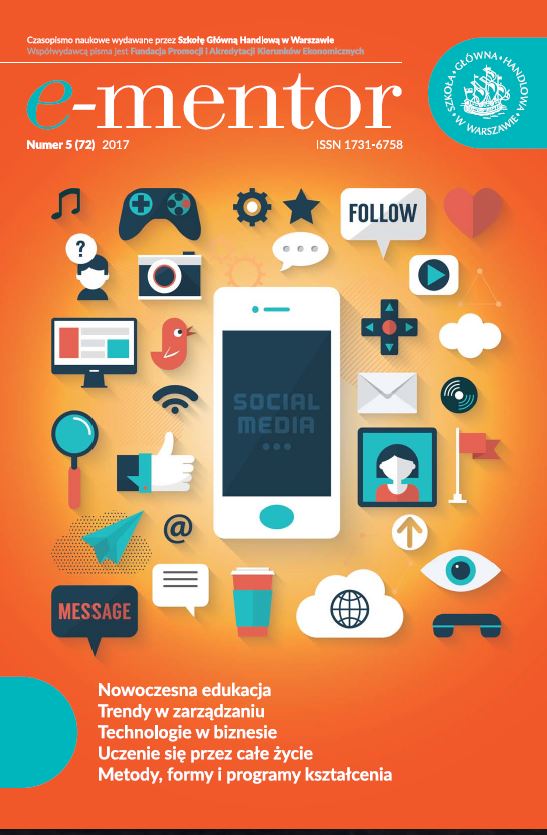Skuteczność działań edukacyjnych w obszarze finansów na przykładzie projektu "Finanse dla młodych, czyli jak zarabiać, inwestować i oszczędzać pieniądze w przyszłości"
Effectiveness of educational activities in the field of finance: a case study of the programme
“Finance for the young – how to earn, invest and save money in the future”
(project co-sponsored by NBP within the program of economic education)
Author(s): Dariusz Piotrowski, Anna Iwona PiotrowskaSubject(s): Education and training
Published by: Szkoła Główna Handlowa w Warszawie, Fundacja Promocji i Akredytacji Kierunków Ekonomicznych
Summary/Abstract: The diverse and complicated nature of financial products makes it increasingly difficult to view the world of finance as userfriendly. The problem of low financial awareness among Poles is important and should be primarily solved at the level of highschooleducation, which comes directly before adulthood and is the last stage of formal education for a certain part of teenagers.This gives rise to a need to carry out educational activities in the scope of behaviour in the financial markets covering bothschool-level education and non-formal education. Depending on the quality of formal education, out-of-school education may bea method to mitigate the lack of knowledge or an attractive form of presenting the topics discussed in school.The paper analyses the results of an educational project of the Polish Economic Society, Bydgoszcz Branch, regarding consciousand responsible saving and investing addressed at upper-secondary school students from the Kujawsko-Pomorskie Voivodeship.The authors attempted at determining effectiveness of this form of after-school education in terms of reducing the deficit inteenagers’ knowledge in the field of personal finance.The training programme resulted in an increase in the subjective assessment of knowledge in the field of personal finance.Students’ declarations were confirmed by the results of tests of economic knowledge. Therefore, it may be assumed that theprogramme addressed at students in upper-secondary education was quite efficient.
Journal: e-mentor
- Issue Year: 72/2017
- Issue No: 5
- Page Range: 36-41
- Page Count: 6
- Language: Polish

